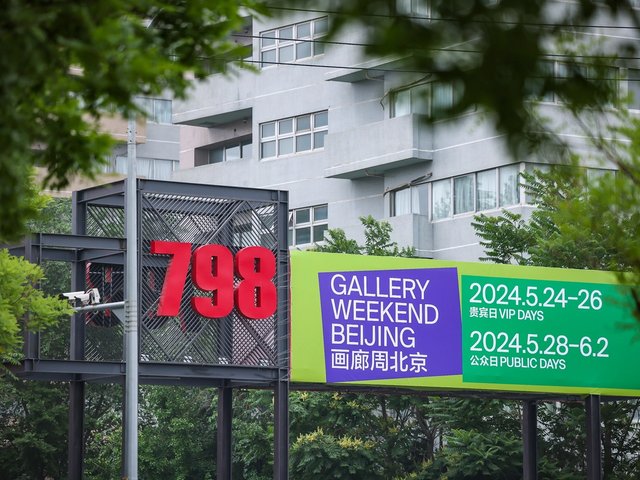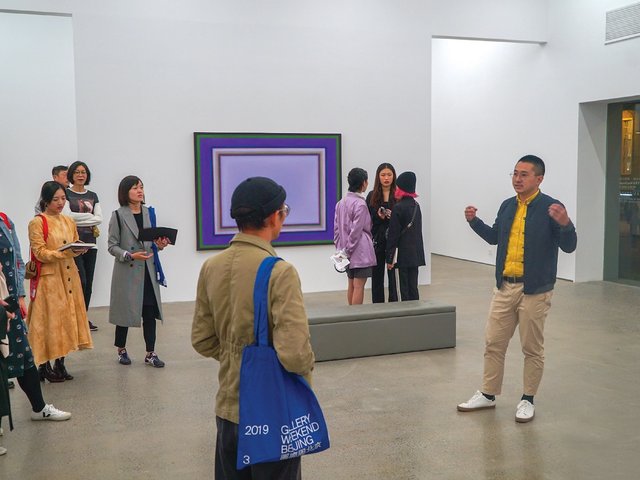As pandemic controls ramp up in the Chinese capital, Gallery Weekend Beijing has indefintely postponed its 2022 edition, it was announced yesterday.
“In light of the latest epidemic prevention policies in Beijing,” and discussion with participants and backers, “we mutually agreed on the decision to postpone the event,” says its director Amber Yifei Wang. The gallery weekend had been due to run from 27 May to 5 June.
While Beijing has thus far evaded the strict lockdowns being implemented across much of China, working from home and regular mass PCR testing has become standard, and domestic travel within China has become nearly impossible. Beijingers have been stocking up on backup refrigerators and supplies in anticipation of tighter controls.
This year the event was scheduled, for the first time, to run close to two major Beijing fairs: JingArt and Beijing Contemporary Art Expo, or Beijing Dangdai in Mandarin, originally planned for 26 to 29 May and 19 to 22 May, respectively. It would have been Beijing’s first stab at a concentrated art season like Shanghai’s in November. At the end of last month, Dangdai was postponed from 30 June to 3 July, while a JingArt spokesperson confirms that fair will also be postponed, though no new date has been given.
“We [are due to have] more than 140 exhibitors from all around China and the world, over 50 are from Beijing and over 20 are coming from Shanghai,” says a Beijing Dangdai spokesperson. “So when the Shanghai pandemic was worsening and cases started to emerge in Beijing, after thorough consideration we thought it was a responsible decision to delay.” Shanghai has been under a complete, citywide hard lockdown since 1 April, while there have been rumours Beijing will follow suit. “We are optimistic about opening in midsummer when we believe the pandemic will be well under control and contained—it has actually been our choice to open the fair in midsummer in the past few years,” the spokesperson adds.
Gallery Weekend, organised by the 798 Art District, plans this year to host 40 galleries and non-profit institutions, including a number of visiting galleries from other cities. Along with the main sector, Wang says, “if the situation allows, the visiting sector should start running at the end of June, along with a series of our social events”. She anticipates that online programming will extend beyond the nine days of the in-person event. “Ideally, other art events will overlap with the gallery weekend, so that we can celebrate the creative spirit of the city together. However, we will select our new dates independently and respect the choices of the other events.”
The JingArt spokesperson points out that, even with overlapping events, Beijing lacks the municipal government backing that facilitates Shanghai Art Week.




